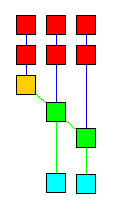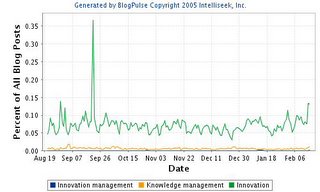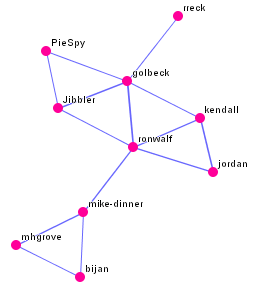Will I get better in my next half marathon race, end of March? Time to beat is 1:34: I'm hoping to get close to 1:32. But, sometimes I'm tiring myself with the goal-setting that I do. With my 40 years, who cares about my time anyway? Inspired by
Running over forty: I do! I don't want to live 'medical', but I know my self esteem gets a boost when I'm just a wee bit faster than the average guy in my age group. So, I train 3-4 times/week (taken up spinning recently, good fun), alternating swimming with running to protect the joints a bit, try to eat healthy and the good thing is, if you're doing long runs, you get to sightsee, think and exercise at the same time!
 EPIC 2014: food for thought. Will we spiral away in an everybody publishes everything, without any editorial formula or ethics? Or will we see complete liberation of information and ultimate personalisation? EPIC 2014 shows a possible future world that you may or may not like....
EPIC 2014: food for thought. Will we spiral away in an everybody publishes everything, without any editorial formula or ethics? Or will we see complete liberation of information and ultimate personalisation? EPIC 2014 shows a possible future world that you may or may not like....








